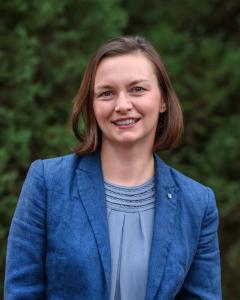The role of democratically elected parliaments in shaping political opinion - through exercising their legislative and control functions - cannot be underestimated. Parliamentary debates should not merely serve as platforms to articulate widely accepted opinions and to represent majority groups, but much rather to further open up new horizons to develop political culture and social norms. Moreover, it is the explicit task of elected duty-bearers to represent majorities - while at the same time protecting minorities. Consequently, citizens may rightfully expect their parliaments to drive prudent and forward-looking legislation albeit sometimes against current trends.
Against this background, the recent exchange between Ugandan parliamentarians and decision-makers in Berlin and Brussels will likely be accompanied by a reverberating effect on both sides. The exchange from 27 to 31 March that had been initiated by the Konrad-Adenauer-Stiftung, was largely coloured by two aspects: On the one hand, the recently adopted Ugandan Anti-Homosexuality Bill and, on the other hand, the German as well as European legislative framework regulating private engagement in the East African country of Uganda.
First things first: The bilateral cooperation between Uganda and Germany, respectively the European Union, is highly regarded by all parties involved. The European side has strongly committed itself to shaping a common future in light of the importance of the African continent. For Uganda, too, the West and the EU are preferred partners. And both parties share the vision of reducing traditional development aid in favour of private sector cooperation.
Indeed, the African continent requires investments to significantly modernise and industrialise its economy. And Europe’s strength will also depend on its economic diversification and competitiveness. However, preconditions for such cooperation – be they normative or practical – do not always overlap; sometimes values and their translation into legislative action in fact reveal large chasms.
Nonetheless, the visit of the Ugandan parliamentary delegation, led by the Deputy Speaker of the Ugandan Parliament Thomas Tayebwa, proved that dialogue is possible, desired and appreciated, when carried out with respect for the sovereignty and cultural differences of the respective counterpart.
During the exchange, the Ugandan Anti-Homosexuality Bill was met with strong criticism on behalf of the European interlocutors. They were particularly concerned about the laws’ draconian penalties, including the death penalty, and the danger of discriminating against individuals and groups on the basis of their sexual orientation. Fears about political instrumentalisation of the law were equally raised.
In this regard, the chairman of the Konrad Adenauer Foundation, Prof. Dr. Norbert Lammert, made clear that the foundation opposes any form of discrimination. According to him, to deny individuals or certain social groups their dignity or their right to participation contradicts our Christian view of humanity. Other interlocutors in ministries and parliaments argued along the same lines and even urged to reconsider the bill. The dialogue partners additionally appealed particularly to the responsibility of the Ugandan parliamentarians in shaping social values and norms, even if these do not go hand in hand with majority opinions.
Vice versa, in the second discussion stream on legal support for private sector involvement on the African continent, the European side was faced with criticism. The EU’s unrealistic requirements in protecting human rights along the entire production and supply chain as well as partly excessive import regulations considerably reduce – if not hinder - African countries’ access to the European market. These requirements were also called out as a curbing factor to the presence of European and Western companies on the African continent. As a result, African countries need to rely on other international actors, despite their clear preference for cooperation with Western partners.
In the area of economic and energy policy, the Ugandan interlocutors advocated for the removal of trade and market barriers, adjustment and transition periods, and technical assistance that would enable a gradual adoption to EU legislative frameworks. Fair trade, they said, means above all for African citizens to benefit economically from the African-European trade. According to the Ugandan interlocutors, increased revenues on the African side would more effectively lead to the desired economic and social development and respect for human rights as compared to the well-intentioned but de facto disadvantageous legal norms that are shaped by political pressure from the European public.
Each conversation and the overall retrospect of the dialogue programme highlighted the importance of critical and confidential exchange. The exchanges also underscored the indispensable role of parliaments in shaping the political, economic and social fabric of their countries. Mutual interest, mutual respect, numerous jointly achieved successes and the wish for intensified cooperation characterise the relationship between Uganda and its European partners. These circumstances allow for listening and willingness to compromise, whereby the partners’ joint strategic interest is likely to be the achievement of shared prosperity.
Provided by
Foundation Office Uganda and South Sudan
About this series
The Konrad-Adenauer-Stiftung, its educational institutions, centres and foreign offices, offer several thousand events on various subjects each year. We provide up to date and exclusive reports on selected conferences, events and symposia at www.kas.de. In addition to a summary of the contents, you can also find additional material such as pictures, speeches, videos or audio clips.



